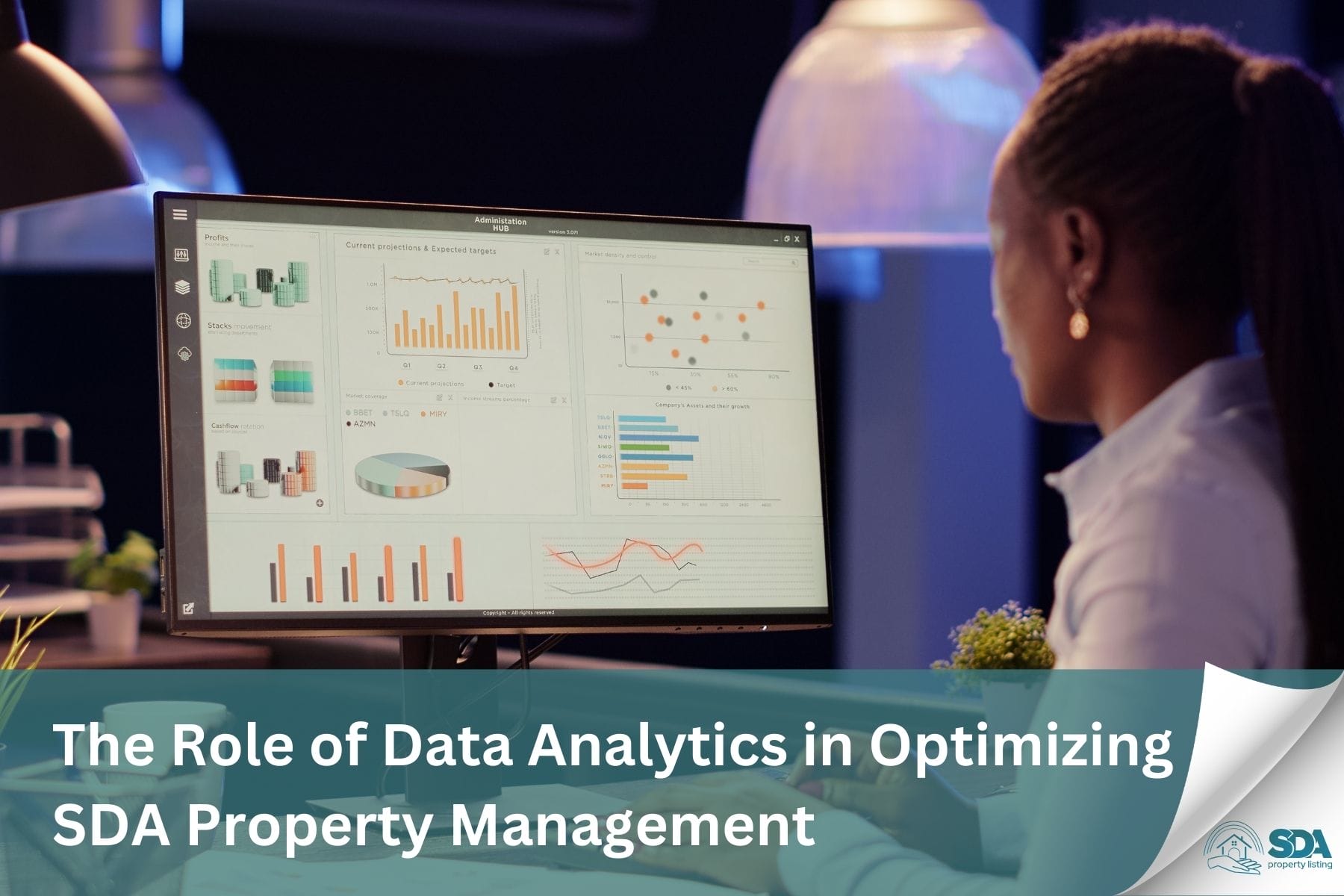
The Role of Data Analytics in Optimizing SDA Property Management
Data analytics has become a powerful tool in property management helping property owners and managers in making wiser decisions based on facts. In the area of Specialist Disability Accommodation (SDA) properties, where tenant needs are very specific, data analytics can enhance the operations, the satisfaction of clients, as well as their long-term investment plan. Here’s how data-driven insights are changing the landscape of SDA property management.
1. Predictive Maintenance for Efficiency
One of the more challenging and expensive elements in the management of SDA assets is maintenance, but that is changing thanks to data analytics. In particular, property managers are able to monitor different building systems and make informed predictions on when maintenance issues are likely to be reported. For instance, property managers can keep an eye on tracking the wear and tear of equipment or review past repair records in order to organize maintenance in advance and avoid costly breakdowns.
With predictive maintenance, there are fewer instances of unplanned downtimes, less inconveniences for the building tenants, and lower costs for emergency repairs. Their actions are also helpful towards managers, ensuring that properties under their care remain operating and comfortable for residents who make use of these facilities.
2. Optimizing Vacancy and Occupancy Rates
Keeping an eye on the rates of vacancy is also essential for the financial performance of every asset, and SDA properties are no exception. Thanks to the power of data analytics, managers can look at the trends of tenant turnover and know when the next vacancy will arise. For instance, after analyzing historical data, normal seasonal trends such as high turnover rates in certain months of the year can be observed. This can easily encourage management to readjust their plans.
Property managers may also leverage this information to enhance marketing campaigns or provide lease incentives during off-peak seasons if there is evidence showing that tenant turnover is high within a specific season. With the inclusion of precise predictive data into their considerations, property managers at SDA can achieve the desired occupancy levels and avoid costly vacant periods.
3. Enhancing Participant Satisfaction and Experience
In SDA properties, the level of tenant satisfaction is always considered first since the residents often have unique and specific needs. With the help of data analytics, property management can assess the responses of participants and requests for services to see if there are any trends in issues and/or areas where improvement is needed. This allows managers to deal with issues before they arise, enhancing the overall experience for the tenants.
For example, data can show that specific services or facilities are often demanded by the residents. As a response to this, the property managers can make these services available and in doing so, enhance the satisfaction of the participants.
4. Financial Performance and Risk Management
Data analytics also contributes significantly in enhancing the financial performance of SDA properties. The property managers can measure and examine key financial aspects such as rent collection, maintenance costs, and cash flow. This enables them to discover cost-benefit areas, control spending efficiently, and secure long-term financial stability.
Additionally, the implementation of data analytics enables the management to evaluate and control risks. Noticing trends in financial records, for instance, property administrators can predict what might go wrong—if there would be budget limitations or extra costs incurred and modify their plans to sustain finances. Identifying and acting on risks early enough is a priceless asset in the management of profitability and the viability of SDA properties.
Tools and Technologies for Data-Driven Management
SDA property managers can benefit from many modern tools which empower them to make use of data. Real estate data services such as Zillow, Realtor.com, and Redfin are beneficial to property managers as they provide essential information on property listings, past sales, property rentals, and other relevant market statistics that help in research and making decisions. With the help of platforms like RealPage and Placer.ai, managers can perform effective market research on a higher level, looking for emerging trends or areas where growth is possible.
Specialized software used for managing properties like Buildium and AppFolio make all the work easier by automating processes such as rent collection, communicating with tenants and tracking maintenance, which are usually tedious tasks. These built-in analytics enable overall property performance by providing managers with occupancy rates, participant satisfaction, and financial performance.
Conclusion
Data analytics has become an essential part of optimizing SDA property management. By using data-driven tools, property managers can predict maintenance needs, manage vacancy rates, and enhance tenant satisfaction. The ability to analyze trends and make informed decisions helps ensure properties run smoothly and meet the unique needs of SDA residents. As a result, both tenants and investors benefit from more efficient operations, improved tenant experiences, and stronger long-term financial stability. Embracing these tools will be key to future success in managing SDA properties effectively.








